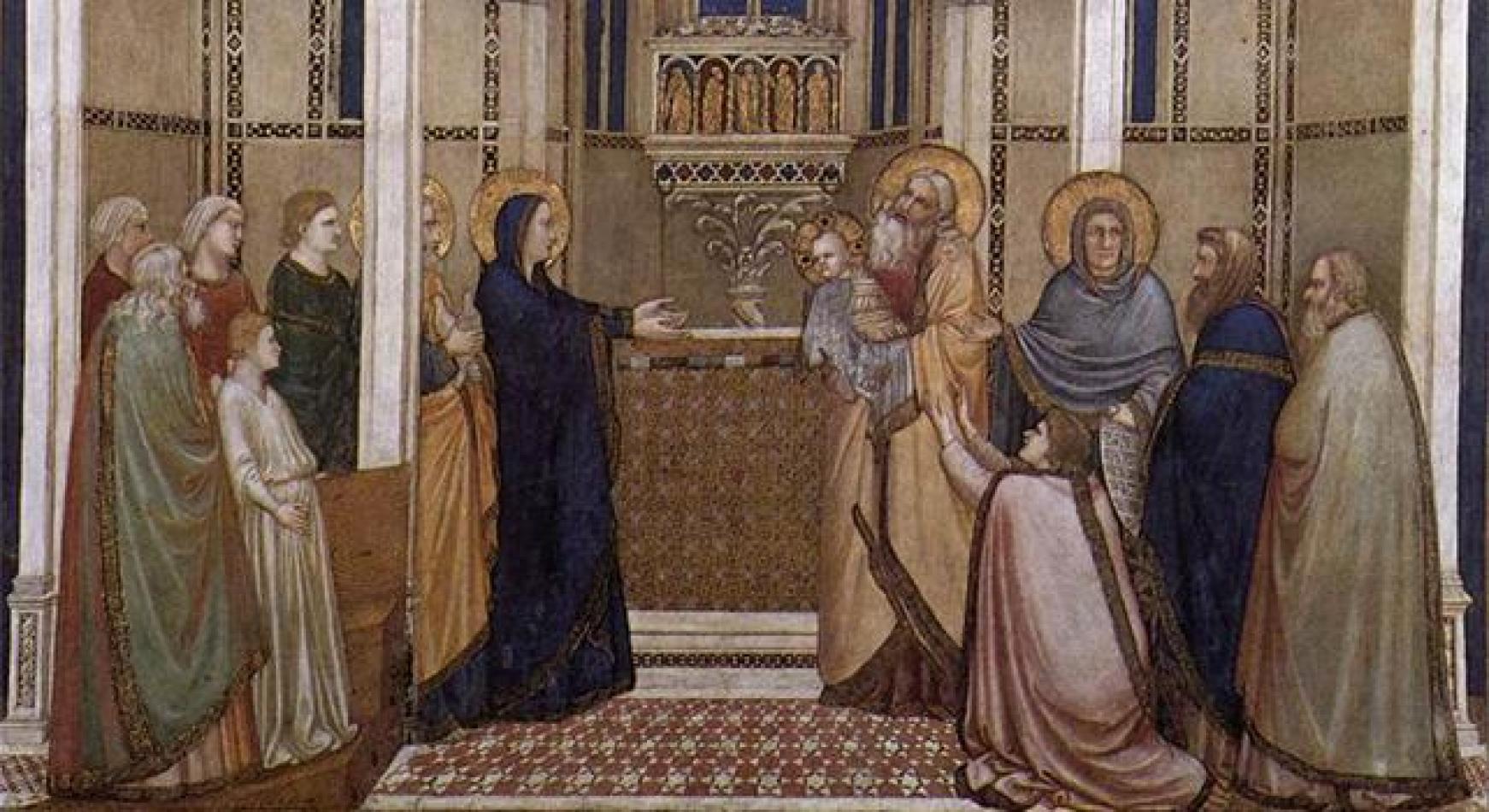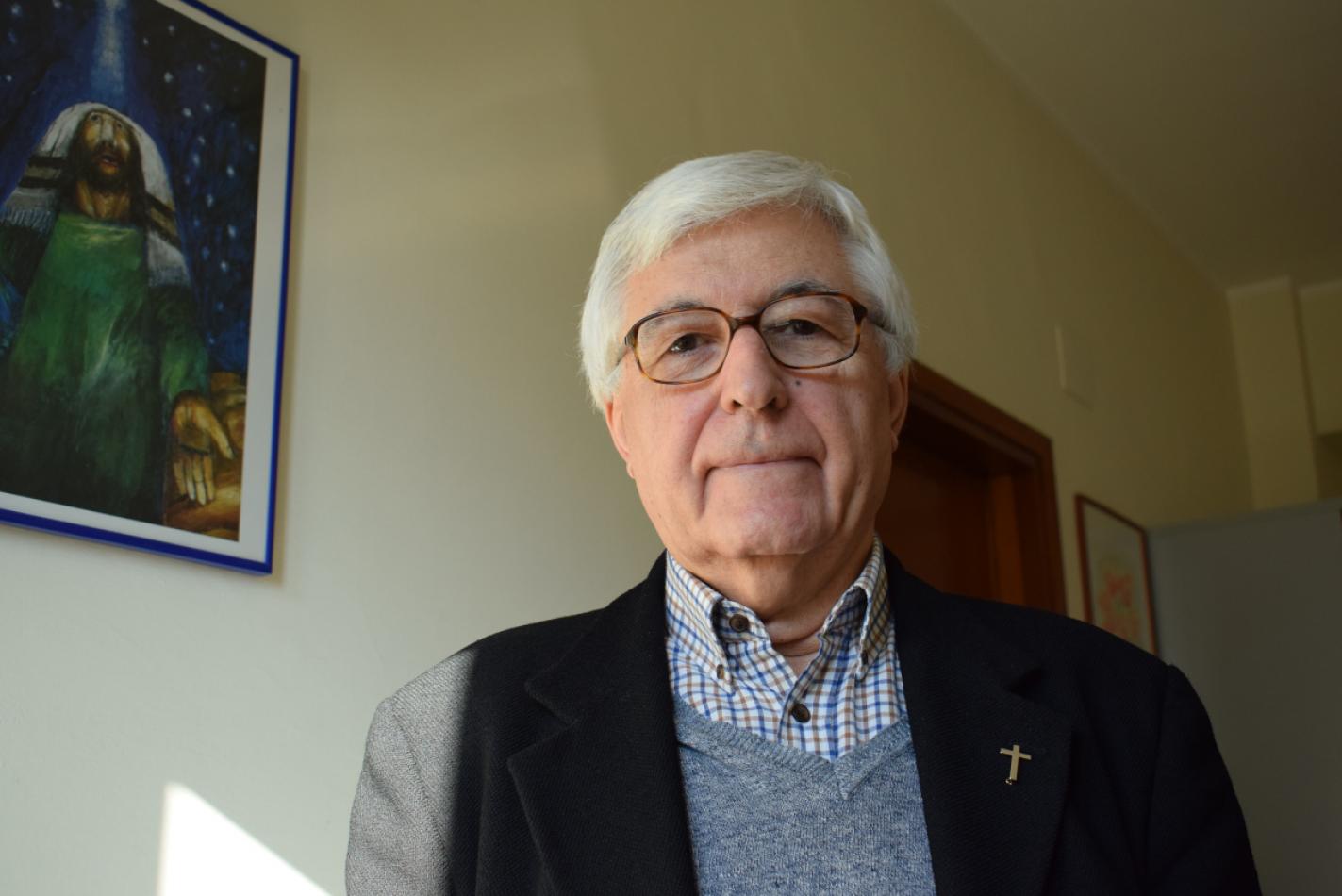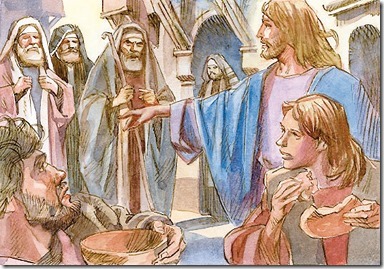Daniel Comboni
Comboni Missionaries
Institutional area
Other links
Newsletter
After five Sundays reading John’s chapter sixth (Jesus, the Bread of Life), we come back to the ongoing reading of Mark; five Sundays ago we left Jesus in Galilee, praying over the mountain, walking over the lake, healing sick people… announcing the Kingdom of God, the kingdom of God’s nearness, mercy and truth.
The heart is what matters
A commentary on Mk 7,1-8.14-15.21-23
In today’s reading we see Jesus in a clear confrontation with a group of people coming from Jerusalem –Pharisees and scribes- that confused human rules and traditions (even religious) with the true cult to God. It’s not a new theme, since the prophets used to recall it from time to time. In fact, Jesus quotes Isaiah, whose words cut through hypocrisy as sword with a cutting edge:
“This people honours me with the lips,
But their hearts are far from me.
In vain do they worship me
Teaching as doctrines human precepts” (Is 29, 13)
And Jesus insists:
“Nothing that enters one from the outside
Can defile those persons,
but what come from the heart”.
It’s not that Jesus despises human rules and laws (even religious ones); the may be very useful and needy for social living. Jesus, in general, was quite respectful and obedient to these laws and to the rules of his human and religious community. But what he says is that we should not confuse these human laws and traditions with the “true cult to God”, especially when behind them there’s a wicked, arrogant and insincere heart.
The cult to God is truthful when proceeds from a heart that is right, truthful and merciful. The tree does not giver better fruits just because somebody paints nicely the leaves, but when its roots are “rooted” in a good and fertile land. In the same way, people are not changed with external rites but with the Word of God accepted and received in a heart that is open, sincere, and rightful. That’s what the heart of Jesus is, the same we identify ourselves with when we go to communion. From this heart many good fruits come out: good works, new rules, new traditions, and new forms of cult… Where there’s life, life is generated.
Give me, o Lord, a heart that is rightful, sincere, and open to the Holy Spirit, who makes everything new.
Fr. Antonio Villarino
Bogota
Mark 7: 1-23
There is a Religion of the Lips and one of the Heart
by Fernando Armellini
In today’s passage, a question that touches on a central element of the Jewish religion is raised: “the purifications.”
To the ancient, the world is divided into two opposing spheres. One is pure in which the forces of life operate, and the other impure where the seeds of death are present. The Israelites considered impure anything that, in any way, came in contact with the lifeless idols, unable to favor life which is the monopoly of the “living and true God” (1 Thes 1:9). Their instinctive revulsion for the idolatrous world manifested itself in extreme forms of separation. When, for example, they came into possession of a foreign land, for five years they did not eat of the fruits of the fields. They waited until all traces of impurities definitely disappeared (Lev 19:23).
The pagans were considered unclean. They were called “dogs” and this epithet appears even on the lips of Jesus (Mk 7:27). The people of Israel was holy (Dt 7:6) and especially the temple in which the Lord had taken up residence was holy. Any contact with the Gentiles or the objects they touched was a source of contamination and required rigorous purification. In this regard, the provisions of the rabbis were very thorough. They did not neglect any detail; they specified what the level of contamination was and which specific ablution was done. They distinguished the different types of water to use; they explained how the items purchased at the market be sprayed before using them. Ignorance of these rules was inexcusable and was the source of curse (Jn 7:49). Any transgression was considered infidelity to God and the sacred traditions.
In the first part of the passage (vv. 1-8), it refers to a heated dispute between Jesus and some Pharisees and scribes who came from Jerusalem. The fault that they reproach him of is that his followers do not respect the distinction between the sacred and the profane: “They were eating their meal with unclean hands” (v. 2) and this casual and provocative behavior they can only have learned from their teacher.
The charge does not apply to the neglect of hygienic standards, but the failure to perform the ritual act that needs to be done, after one has taken a bath, from any desire to keep his distance from the pagans who are rejected by God. From where did these strict rules and obsessive observances come from? From the “tradition of the elders,” from those teachings of the rabbis to which was attributed the same value as the Word of God contained in the Holy Scriptures.
The Bible states that, before eating the sacrificed meat of the temple, the priest washes his hands and feet (Ex 30:17-21). However, some particularly devout groups of lay people had also adopted the customs of the priests’ sacred banquets in their homes. Little by little, this practice had spread among the people, giving rise to the belief that the rule had been dictated by the Lord. The formula that was used to recite was as follows: “Blessed are you, Lord our God, king of the world, who hast sanctified us with your precepts and has commanded us the washing of hands.”
The spiritual leaders had blessed this tradition, likening it to God’s law, that law which – as we have seen in the first reading (Dt 4:2) – should not be altered in any way, or must not suffer cuts or additions. If these rules had been framed in the proper perspective, they would not have been a particularly negative factor. They were simply the expression of a need, thoroughly studied by modern psychological science, to resort to certain practices to exorcise phobias provoked by something different, from what which is considered a threat to their identity. They became dangerous because they were made equal to the Word of God, leading to a distortion of the face of the Lord and our relationship with him. The consequences were the same ones that can occur even today when this often unconscious equation is reintroduced. Let’s see them.
The first, very serious, is to attribute to God the distinction between pure and impure people, between the righteous and sinners. This discrimination, and the relative norms to avoid prohibited contacts, lead to isolationism, trigger intolerances and put into action perverse dynamics of aggression. There are not willed by God, for whom all people are pure (Acts 10), and there are no differences of race, gender and social status (Gal 3:28). Even the separation of clean and unclean creatures, between sacred and profane is not desired by the Lord, but by people. He “loves everything that exists and hate nothing that you have made” (Wis 11:24).
“In the judgment of God – the rabbis taught – man must give an account of everything that his eye has found pleasure and of which, however, he has not enjoyed.” Their words reflect the serene mentality of the biblical man who rejoices in the beauty of nature and thanks God for the food, wine, health, beauty, sexuality, and for all the gifts he received from the Lord (Dt 8:10).
The equation of the “tradition of the elders” to God’s will involves a second major drawback: the absolutism of ritual practices. Who believes it to be established by the Lord, fulfills it scrupulously and ends up convincing oneself being right with God and with others. He wisest among the rabbis had sensed this danger. They complained about the insufficiency of these practices and had called for the conversion of heart. The monks of Qumran, who also made liberal use of purification rituals, taught: “We cannot sanctify or purify ourselves in lakes and rivers nor purify ourselves by washing with any water. We will remain impure as long as the commandments of God are despised.”
Jesus puts himself in the spiritual line of the prophets and pious masters of his time. He focuses on the renewal of life and takes a strict position against the religion reduced to mere compliance to a legal code. He says that God is not interested in external purity, formalisms, and solemn liturgies of the temple appearances. Like the prophets (Am 5:21-27; Is 1:11-20; 58:1-14), he unreservedly condemns this “religious farce” and, quoting Isaiah, says: “This people honors me with their lips, but their hearts are far from me. The worship they offer me is worthless for what they teach are only human rules” (vv. 6-7).
The evangelist Matthew records another prophetic word, to which Jesus seems to resort to resolve disputes with the proponents of the cult of traditions: “Go and find out what this means: What I want is mercy, not sacrifice!” (Mt 9:13; 12:7). In today’s passage, those who deify these traditions are described as hypocrites, that is, actors, comedians who cover their faces with the mask of piety, devotion, obedience, who pretend to be pious, but, instead neglect the single worship pleasing to God, love for the brothers and sisters. They honor the Lord in word only, and with their lips, not with their hearts (Dt 6:5). The evangelists would not have retained these harsh words of the Master if he had not understood the perennial relevance of the risk of introducing into the Church this hypocritical worship and the danger of equating the law of God with the traditions of humans.
The strict observance of the clear and well-defined rules gives the feeling of having done one’s duty, makes one feel right in front of the Lord; it even leads to claim of being in credit with him. Building up one’s life in the freedom of God’s children, to be continually available to the brother or sister is more difficult. The needs of people change and who loves must ask oneself, at any time, what he is called upon to do, what is required, what the brother expects of him. Love is not dictated by rules, but it is invented moment to moment, requires imagination, attention, total and unconditional availability.
The religion of the heart can be practiced only by those who have reached a mature and adult faith, those who are free, sincere, and open to the light of God and to the Spirit. The “infants in Christ” (1 Cor 3:1) fear the risk; they prefer to receive precise and meticulous provisions, though, in their hearts, they realize that this religion is not liberating, does not communicate joy and inner peace, but only tensions and anxieties.
In the second part of the passage (vv. 14-23), Jesus establishes the criteria by which to distinguish between pure and impure actions. Those that defile man do not come from outside but from within, from the heart. The twelve defects (six in the plural and six in the singular) that make a person impure, are points from which the religious must examine themselves. What discriminates between good deeds and evil deeds is not the compliance or deviation from a norm, but the fact of being for or against man. And what is stated for food goes for all the other precepts derived from the “traditions of the elders.”
At the center of the steps that, from the south side, led into the temple in Jerusalem, numerous tanks used for purification of priests and pilgrims who went up to offer sacrifice are placed. To one who is a Christian, these tanks are no longer needed because, to his disciples, Jesus asks only the purity of heart. To the question: “Who will ascend the mountain of the Lord? Who will stand in his holy place?” He, with the psalmist, would answer: “Who with clean hands and pure heart” (Ps 24:3) and adds: “So if you are about to offer your gift at the altar, and you remember that your brother has something against you, leave your gift there in front of the altar, go at once and make peace with him, and then come back and offer your gift to God” (Mt 5:23-24). Only the one who is at peace with his brother or sister is pure and can approach God.
https://sundaycommentaries.wordpress.com





